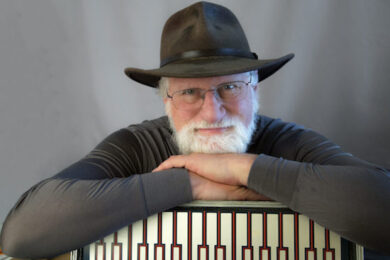Ahead of the final session on the second day of a bootcamp event I attended, a trainer went to the front of the room to tell the small assembly of students about the week-long residential programme the company offers in addition to the weekend training course they were already attending. Promising not to take up too much of their time – wary of being accused of up-selling – he began by explaining:
“What is the residential? It’s seven days living with us. You live with us in central London. We were in the flat last night and there were about ten girls there – that’s just your average night in the residential apartment. What does the course involve? It is a lot of fun, you do get a lot of results, but it is a lot of work as well. If you’re not willing to work, you shouldn’t apply, because it’s a twenty-four seven programme. For seven days you’re going to be fully immersed in the world of pickup. Your results will rocket – not from day five, from day one. From day one you’ll be working hard, and getting results from day one.”
After detailing the application process and payment details – the residential programme offered by this company costs over £4,000, which can be paid in monthly instalments – the manager called upon the current residential client to come and share his experiences thus far with the bootcamp students. Striding from the back of the room where he had been sitting with the trainers, he paused briefly to shake hands with the trainer before looking around the room and saying: “Where do I start? I mean, it was amazing. Absolutely amazing.”
The residential client began by detailing the numerous sexual encounters he had had over the past week, which included taking a woman home on the first night of the programme and having sex with her, and later having a threesome. Describing his personal highlight, he recounted meeting a woman on the street during a daygame session and spending the afternoon with her. Eventually he took her back to the residential apartment for something to eat, promising they would go out again for ice cream afterwards: “I started escalating on her, took her to the bedroom. We got it on in the middle of the day. Like, not even four o’clock. That’s how my Wednesday went. Absolutely amazing.” Impressing how valuable the programme had been – he has now entirely resolved his anxiety issues – he explained that, while his results had progressed after the bootcamp course, taking the residential programme had produced more fundamental changes in him, such that he now possesses not only the skills but the belief system necessary to be successful with women. Enjoining those attending the bootcamp to find a way to pay for the residential programme, no matter what their financial situation, he concluded by saying: “I was destroying girls. They were just melting in my hands. It was fantastic.”
Residential programmes and bootcamp courses offer men access not only to a particular service – that of seduction training – but to a particular experience. Those who pay to attend these events, at a typical cost of several hundred if not thousands of pounds, are afforded temporary access to the lifestyle trainers enjoy as a homosocial collective. The seduction industry must thus be understood as part of what Joseph Pine and James Gimore have termed the “experience economy”, and in this respect it has much in common with other sites of commercial sexual exchange. In a 2003 auto-ethnographic study of strip clubs in the United States, Katherine Frank describes how clubs afford men the opportunity not only to look at women’s bodies but to enjoy – however fleetingly – an atmosphere of glamour and luxury. In this way, strip clubs offer men a space to enact “masculinising practices” (to borrow a phrase from R.W. Connell), where they can cultivate a sense of themselves as authentically masculine. Similarly, in her work on sex tourism in Costa Rica, Megan Rivers-Moore argues that one of the major reasons North American men travel abroad to buy sex is because doing so allows them to access both sexual and social experiences they otherwise cannot afford. Sex tourism thus encompasses “transnational masculinising practices”, whereby crossing borders enables men to claim what Rivers-Moore calls “a level of social status that would be unavailable to them at home”.
In the context of the seduction industry, paying to attend commercial events offers men the opportunity to participate in an exclusive form of homosociality in which women are abundant and circulate freely as objects of exchange among men. Enrolling on seduction training programmes – especially where these involve a live-in or holiday-abroad component – thus permits men to live out what Frank calls their very own “fantasy-reality” in a manner similar to that offered by other kinds of sexualised entertainment and touristic practices. What differentiates the seduction community from these other arenas of commercial sexual exchange – apart from the lack of direct remuneration for sexual access to women’s bodies – is that the masculinising practices in which men engage in this setting are expressly intended to translate into other spheres. In contrast to the delimited forms of enhanced status that commercial strip clubs and sex tourism can offer, attending a weekend bootcamp or week-long residential programme is not simply an ‘outlet’ or ‘escape’. Rather, seduction training events promise to enable men to cultivate a set of skills and dispositions that can be carried into other areas of life. The key difference, then, is that the seduction industry has an expressly pedagogic function.
Commercial training events provide a forum for men to cultivate and then demonstrate heterosexual prowess in the presence of other men, thereby laying claim to a more dominant or authoritative form of masculinity. This was readily evidenced by the sense of confidence that attending events inspired in many men. In our interview, James explained:
“It’s that kick up your arse that you need. Outside the bootcamp obviously the thought of approaching somebody that you’ve never met – especially if she’s hot – it’s quite daunting. But they give you that sort of goal, and before you know it you’re walking over to her, you know. And even just having them there, just being with other males, it’s like you’ve got the confidence then. You feed off each other’s confidence, in a way.”
For James, it is the presence of other men that creates the performance imperative necessary for him to face the challenge of approaching women. Far from constraining or undermining men’s sense of themselves as masculine – a dynamic that often manifests in their relationships with men elsewhere – seduction training provides a space in which men can affirm themselves as masculine. This is an opportunity worth paying for precisely because “heterosexual confirmation,” in the words of masculinities scholar David Buchbinder, “must be diffracted somehow back through the patriarchal structure, then recognized and authorized by other men”.
This sense of affirmation can continue beyond the temporal confines of the training event itself. Anwar described the high he experienced in the immediate aftermath of a bootcamp weekend:
“I was on cloud nine when I left. I was confident, I was laughing, and everybody noticed. I mean everybody noticed. I went to a work do afterwards and everyone was going, ‘What’s happened to you? You’ve just become a completely different person!’ Laughing, confident, not taking any – not cowering to the good looking AMOGs [Alpha Male Other Guy] in the room. None of it.”
Enabling men to confirm their masculinity among men, the seduction industry is premised upon and reinforces the patriarchal dispensation of power wherein, in Buchbinder’s terms, “men come to depend for their definition as masculine upon their being recognised as such by other men”. Yet in allowing men to experience themselves as masculine in ways they seemingly cannot do elsewhere, the seduction industry can create a kind of dependency. As Anwar went on to describe, the come-down after the initial high was dramatic: “I have to admit, a week later I went into depression.” Because of this, he was weighing up further training options, with a residential programme top of his list: “It isn’t cheap, but I just feel, on the whole, for six and a half thousand . . . you get a whole week, and you get a place to live and hang out. So I’d love to do it, and I’d love to get better at it.”
Seduction, by Rachel O’Neill, is published by Polity





